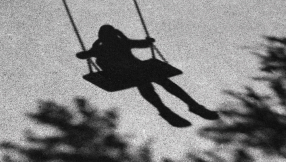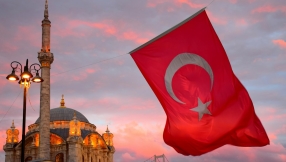Muslims in Quebec City are protesting after being left without their own cemetery following a local referendum,despite an atrocity in January in which a gunman killed six members of a mosque, with five victims being sent abroad for their burial.
Only one of the victims was buried in Canada, at a Muslim-run cemetery near Montreal, while the rest of the immigrants were buried in their countries of origin.
On Sunday residents of St-Apollinaire, a town of 6,000 about 20 miles southwest of Quebec City, voted to turn down an application for a zoning change to allow the Islamic Cultural Center, the owners of the mosque where the deadly shooting occurred, to open a cemetery.
According to The Washington Post, the vote was open to only 49 residents living adjacent to the proposed cemetery site, and 36 turned up. Sixteen voted for the cemetery, while 19 voted against, and one ballot was spoiled.
The story is front-page news in Canada, a country usually seen as welcoming to immigrants.
'Thousands of Muslims in Quebec City have been told we don't want you,' said Mohamed Kesri, secretary of the Islamic Cultural Center.
'Ignorance and misunderstanding have won the day,' added Mohamed Labidi, president of the center.
The cemetery proposal was backed by Bernard Ouellet, the mayor of St-Apollinaire, who blamed its rejection on fear and misinformation.
Cardinal Gérald Cyprien Lacroix, Quebec City's Catholic Archbishop, was also in favour and pleaded with voters to allow the cemetery to proceed as 'a mark of respect for another religion'.
St-Apollinaire is, like much of rural Quebec, overwhelmingly white, French-speaking and nominally Catholic. Statistics show that there is not a single Muslim, Jew, Sikh or Hindu in the community.
Twenty-seven-year-old Alexandre Bissonnette from Quebec City, a man with far-right political views, has been charged with six counts of first-degree murder in the January mosque attack and is awaiting trial.
Politicians promised to resolve the cemetery issue in the wake of the attack.
An undertaker in St-Apollinaire offered to sell a 65,000-square-foot piece of land adjacent to his funeral parlor to the Islamic center, which would have been enough for 1,000 plots.
But when local residents found out about the plan, they took advantage of Quebec laws that allow residents directly affected by zoning changes to force a referendum.
In March, at a public meeting to discuss the proposed project, opponents voiced concerns that a Mosque and a school could follow a cemetery. 'We're already feeling invaded,' one opponent told the Globe and Mail newspaper.
Despite Canadians generally holding positive views of immigrants and the prime minister Justin Trudeau welcoming some 40,000 Syrian refugees, intolerance of Muslims makes its presence known, particularly in Quebec, according to The Washington Post.
According to a poll carried out in March by the research firm CROP, for the French network of the Canadian Broadcasting Corporation, 23 per cent of respondents across Canada favored a ban on Muslim immigration of the sort being pushed by Donald Trump across the border. The figure was 32 per cent in Quebec.
Quebec has also seen rows over veiled women, reflective of similar debates in France. The same CROP survey showed that 67 per cent of Quebec residents wanted to ban public servants from wearing religious garments at work, compared with 34 per cent in the rest of Canada.
Yannick Boucher, an anthropology lecturer at the University of Montreal who has studied Muslim burial practices in Quebec, said the referendum result in St-Apollinaire was based on 'fear of the other'.
Boucher added that when Muslims die in the province, up to two-thirds are sent back for burial to their countries of origin, particularly in North Africa, because of the lack of cemetery space as well as the feeling that they are not fully accepted by their new society.













